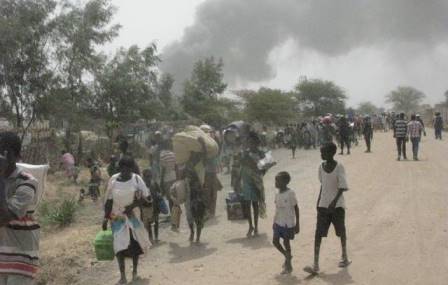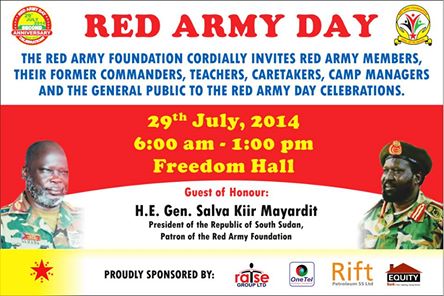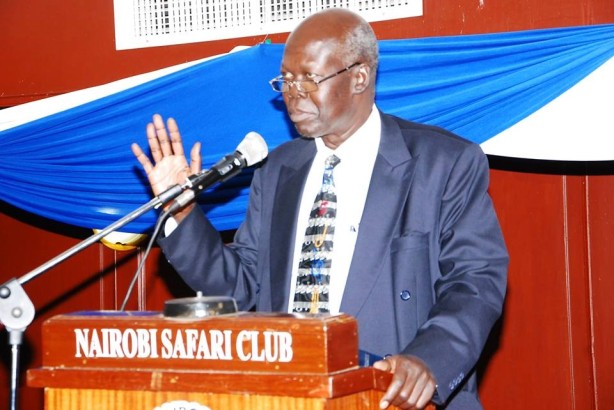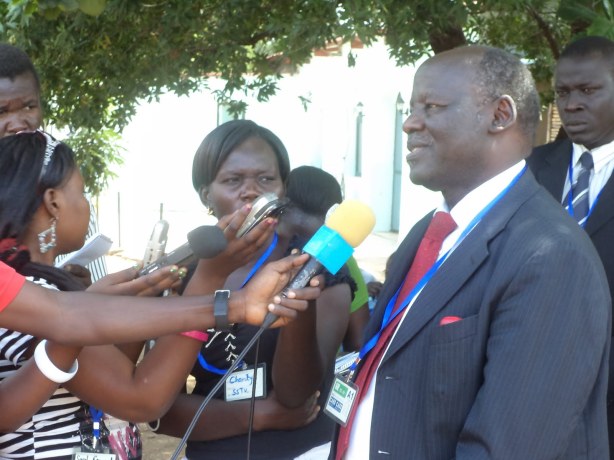Responses to “President Kiir Rebukes Governor Chol Thon over Mistreatment of Shilluk and Nuer in Malakal.”

IDPs flee the Malakal POC on 18 Feb, 2016
Malith Alier says: “This is like succumbing to Shilluk noise. Gov. Chol Thon was right to reallocate those workers from new states just like was the case with parliamentarians. Can someone tell us that MPs who hailed from either West Nile or Latjor have not gone to their new states? I cannot comprehend why Gov. Chol order is divisive but order 36/2016 is not. This is like being vague about things that matter to the republic. Number one, the kind of “federalism we have does not permit free employment in the whole country. Can someone tell me why all the Governors of 28 states come from the very states they now run? The same to MPs and logically the workforce. Critical thinking is needed here.”








Inching Toward Plurality of Ideas: Dr. Majak’s response to Dr. Lam Akol
Posted: March 18, 2016 by PaanLuel Wël Media Ltd. in Commentary, Contributing Writers, Featured Articles, Opinion Articles, Opinion WritersDr. Majak D’Agoot’s response to Dr. Lam Akol’s article: “Does the end of the SPLM mean the end of the South Sudan state?”
By Majak D’Agoôt, PhD, Juba, South Sudan
Dr. Majak D’Agoot and Dr. Marial Benjamin, during the SPLM extra-ordinary Convention in Juba, January 2016
March 18, 2016 (SSB) — The proposition that a multi-pronged clash of visions between the opposition forces and the government; and within the political opposition on both ends of the argument, is a litmus test for democratic development, and an index of ideological maturity and political stability – is not a far-fetched conclusion. The ongoing televised debates in the run-up to party nominations in the U.S have sometimes come close to a tirade among comrades-in-destiny. These look like sideshows but that is how democracy is nurtured and how it works in practice. Politics is not a crank that peddles outcomes from the other planet to be enjoyed here on earth. It is, in fact, the bedrock of an organized human activity which under constant social engineering and mutation.
(more…)
Share this: